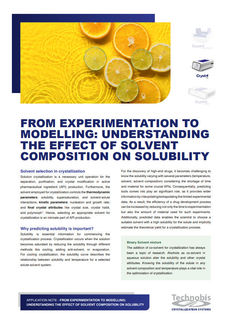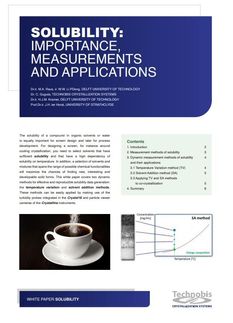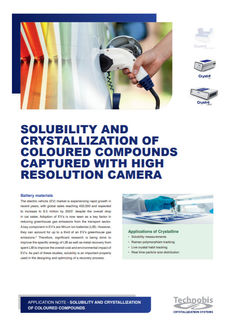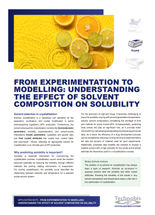
Technobis
From experimentation to modelling: understanding the effect of solvent composition on solubility

Learn how to select the best solvents for solubility to optimize your crystallization process
70% of all solid materials produced in the chemical industry are obtained by crystallization or precipitation from solution. The solubility of your compound in organic solvents or water plays a crucial role when designing and optimizing your crystallization process. Knowing the solubility will allow you to select suitable solvents for the different crystallization methods. Alcohols, for example, are often used as co-solvents in aqueous solutions altering the solubility and other crystal attributes.
In this paper, we explain the effect of alcohols as co-solvent on solubility. Furthermore, we exemplify how measured solubility data in various water-alcohol binary solvent systems and the Jouyban–Acree model can be used to predict solubility as a function of temperature and solvent composition. Predicting the solubility in various binary solvent systems makes it easier to select the most appropriate solvent system to optimize the crystallization process. Finally, we discuss how predictive technology provides a wide range of information with limited experimental data and resources.
Advertisement











